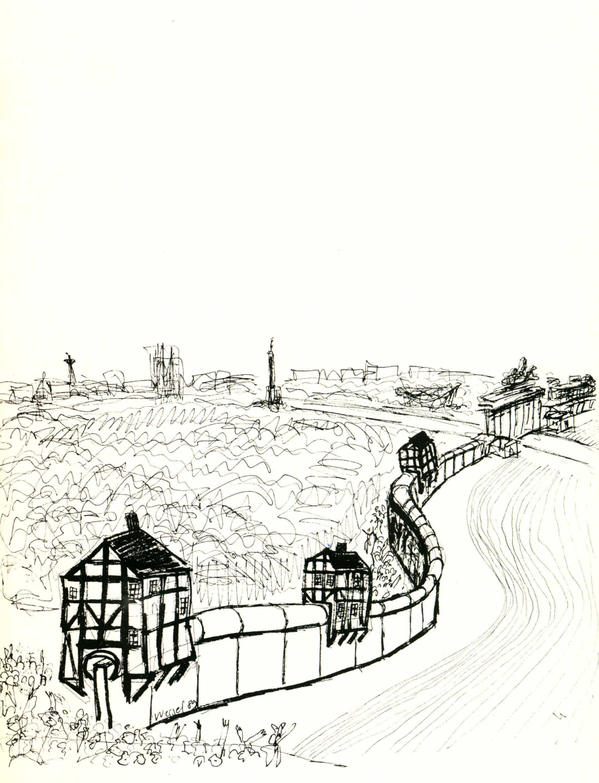Princeton University School of Architecture
announces the Dissertation Proposal Defense of
Holly Bushman
From Internationalism to Globalism:
East German Architectural Knowledge and the End of the German Democratic Republic, 1976-1993
Committee
Jay Cephas (Princeton University, Co-Advisor)
Brigid Doherty (Princeton University, Co-Advisor)
S.E. Eisterer (Princeton University)
Alla Vronskaya (University of Kassel)
Tuesday, April 23, 2024 at 12:15 p.m. S-118, Architecture Building
Abstract:
During the mid-1970s, the emergence of new scholarly paradigms engendered research and design practices which inserted the German Democratic Republic (GDR) into global architectural discourses. Subsequently, the GDR’s final decade saw an academic reevaluation of architecture and urbanism through historical and theoretical experimentation, as well as the development of new scholarly networks which brought together academics and practitioners from Eastern Europe, Western Europe, and the so-called “Global South.” This dissertation advances a history of the production of architectural knowledge during the final 15 years of the GDR, focusing on a set of intellectual, pedagogical, and experimental practices and polemics which sought to reconceptualize the East German built environment during the state’s final years. While these techniques only occasionally resulted in new building methods, I suggest that their ambition nonetheless demonstrates the cardinal priority of the GDR's historians, theorists, critics, and architects of the period: negotiating a future for East German architecture which revivified and rearticulated the potential of a socialist built environment within a rapidly globalizing world. In its first two chapters, this dissertation traces two primary thematics through which, I argue, this imperative was developed and tested at the GDR’s three schools of architecture in Weimar, Dresden, and Berlin. First, I describe attempts to derive a “usable” history from German architectural history and cultural heritage; and second, I trace the ways in which East German architectural knowledge was asserted as a global paradigm within international development and preservation discourses. A final chapter examines how these scholarly projects and practices were called on during the process of German reunification and in its immediate aftermath, in defense of the very future of the East German built environment they had been conceived to ensure. In following these intellectual trends across the historical rupture caused by the fall of the Berlin Wall, I look to demonstrate the ways in which they outlived—if only briefly—the nation state they were designed to sustain, and to show how architectural knowledge remained crucial to discourses around East German statehood and identity even after the state ceased to exist.

